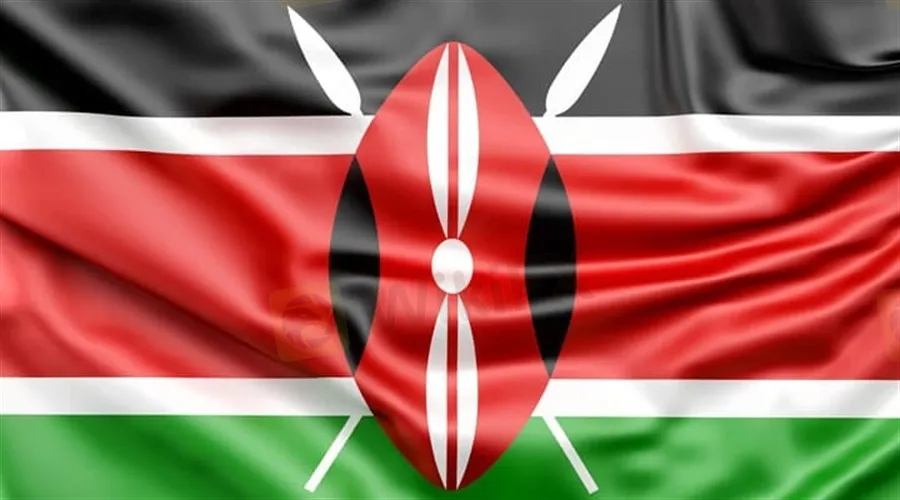简体中文
繁體中文
English
Pусский
日本語
ภาษาไทย
Tiếng Việt
Bahasa Indonesia
Español
हिन्दी
Filippiiniläinen
Français
Deutsch
Português
Türkçe
한국어
العربية
Central Bank of Kenya Releases Discussion Paper on CBDCs
Abstract:Central Bank Digital Currencies (CBDCs), a phenomenon that took over the global financial system in 2021, is now getting popular among African economies. Recently, the Central Bank of Kenya (CBK) published a discussion paper on CBDCs to highlight different opportunities and risks associated with the central bank digital currencies.

CBK also highlighted the growing popularity of digital payment methods.
The Bank discussed potential benefits and risks associated with CBDCs.
CBK noted that AML, technology risks, and infrastructure costs are some of the major risks associated with CBDCs. However, the bank also outlined a few prominent features of the digital currencies including the expansion of cross-border payments, financial stability, innovation, and financial inclusion.
The Kenyan central bank highlighted the rising popularity of digital tools in the global payments industry. “Following the outbreak of the coronavirus (COVID-19) pandemic, digital platforms have emerged as important financial inclusion tools across the world. To reap the full benefits and manage risks, policymakers are looking to step up. Central banks are exploring the possibility of rolling out CBDC solutions to meet their future payments needs in a digital economy,” CBK mentioned.
According to a recent survey conducted by the Bank for International Settlements, nearly 86% of central banks around the world are exploring the possibilities of CBDCs.
Risks
The Central Bank of Kenya said that it is monitoring the ongoing developments in the global CBDC ecosystem. While the bank outlined the potential advantages of CBDCs, it added that the disadvantages of digital assets must be considered before further developments.
“There are significant potential risks with CBDC issuance. These include financial exclusion, technology risks, competing with bank deposits and undermining bank intermediation, hampering monetary policy transmission, Anti-Money Laundering and Combating the Financing of Terrorism (AML/CFT), and data privacy balance and infrastructure costs,” the Central Bank of Kenya added.

Disclaimer:
The views in this article only represent the author's personal views, and do not constitute investment advice on this platform. This platform does not guarantee the accuracy, completeness and timeliness of the information in the article, and will not be liable for any loss caused by the use of or reliance on the information in the article.
Read more

Top Tips to Choose the Best Forex Broker in 2025
You need a solid forex broker to make the most of the currency fluctuation. The strategies they use to take you through the ups and downs of forex trading are beyond words. While the strategies may seem solid, the eventual gains matter more. That’s where you need to take notice of the forex brokers, how they approach, their fee structure, rating, etc. To help you evaluate forex brokers better, we have this guide for you. Read it to choose the right forex broker in 2025.

Blockchain Decentralization: Empowering a Trustless Future
In recent years, blockchain technology has rapidly evolved from a niche innovation behind Bitcoin into a transformative force across industries. At its core, blockchain decentralization refers to the distribution of authority and decision-making away from a central entity and into the hands of a distributed network of participants. This shift redefines how data is stored and verified and paves the way for trustless, transparent, and resilient systems that challenge traditional centralized models.

The president of @Liberland, @Vít Jedlička come on stage, dialogue on trading security.
The 2025 WikiEXPO Hong Kong Station is about to grandly open. the president of @Liberland, @Vít Jedlička come on stage, dialogue on trading security.

Countdown: 1 day.WikiEXPO2025's first stop, Hong Kong, is about to open.
⏰ Countdown: 1 day. WikiEXPO2025's first stop, Hong Kong, is just tomorrow. Focus on transaction security and explore new investment opportunities. ???? Get ready to start now. See you tomorrow.
WikiFX Broker
Latest News
XTB Hack 2025: Major Security Breach Exposes Client Accounts
These are America's 10 weakest state economies most at risk in a recession
These are America's 10 strongest state economies best prepared for a recession
Federal Reserve quietly responds to Trump administration attacks over renovation
Tariff Windfall Drives Surprise $27 Billion US Budget Surplus In June
Top Wall Street analysts are upbeat about these dividend-paying stocks
Singapore's economy grows 4.3% in second quarter, beating expectations
Asia-Pacific markets trade mixed as investors assess Trump's latest tariff threats; bitcoin hits new highs
Gold Soars Above $3,350 as XAU/USD Rallies on Trade Tensions
What WikiFX Found When It Looked Into Emar Markets
Currency Calculator


